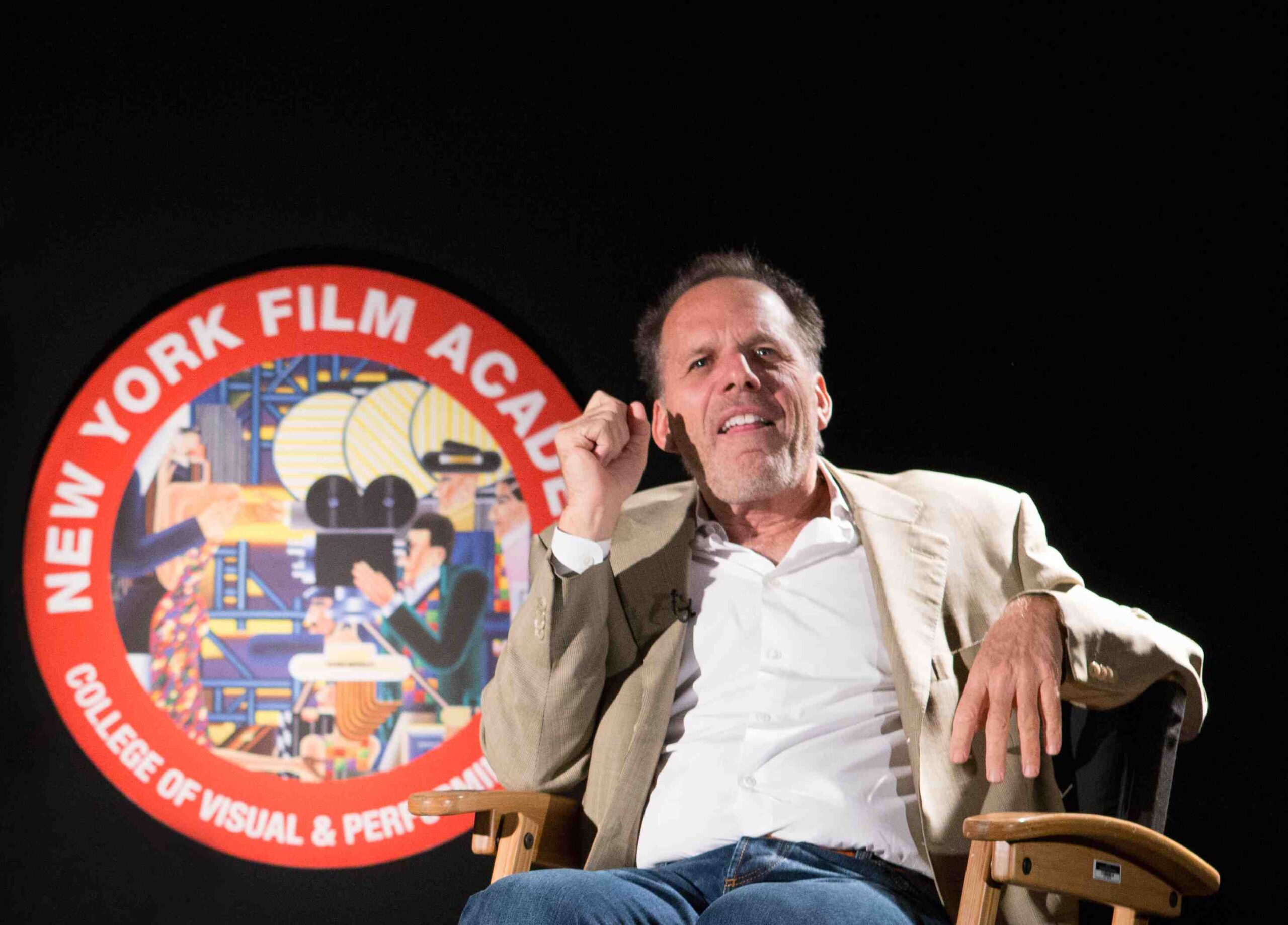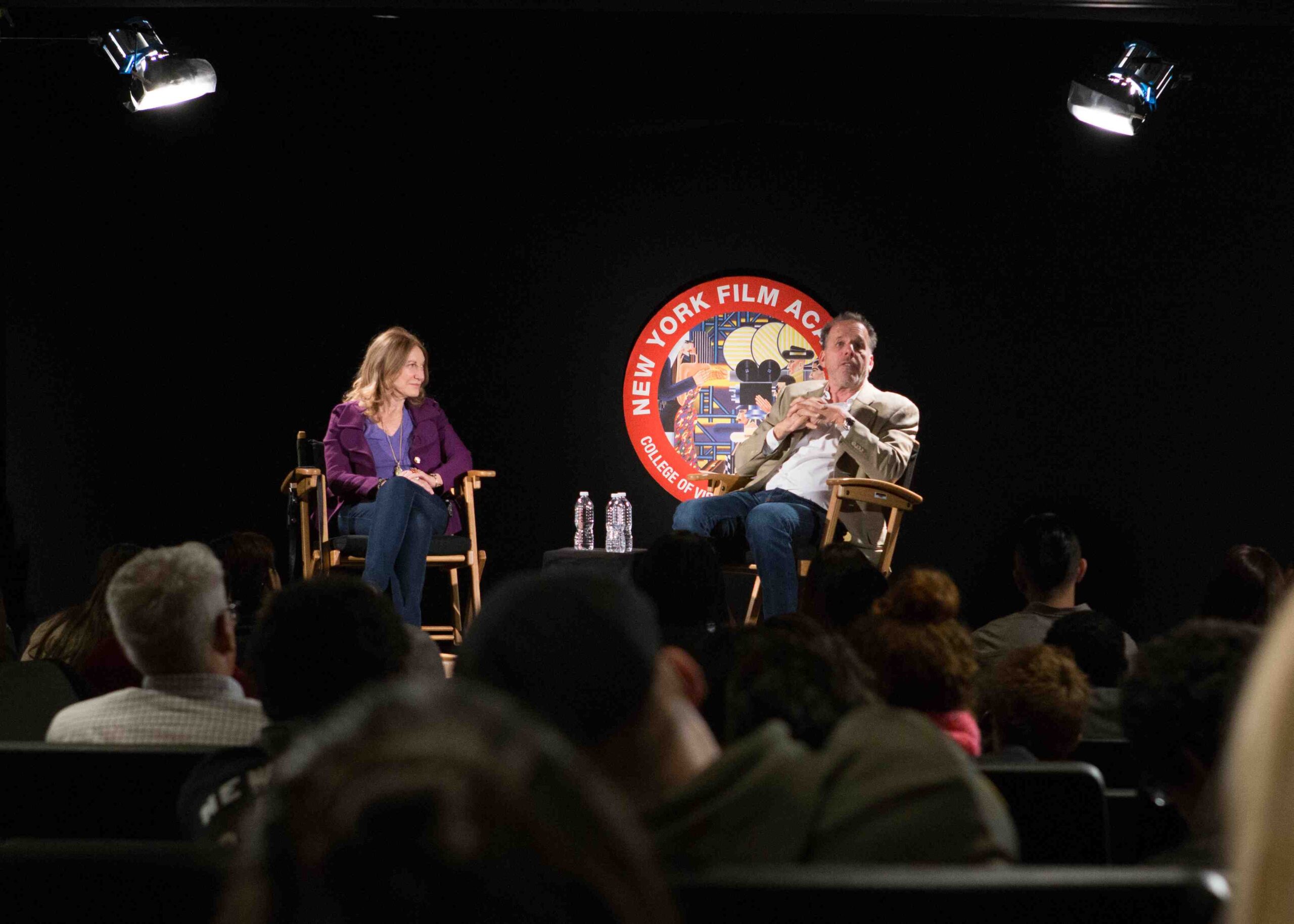New York Film Academy students in Los Angeles received a special viewing of The Walk (directed by Robert Zemeckis and starring Joseph Gordon-Levitt, Ben Kingsley, and Charlotte Le Bon), which is not yet released to DVD or Blu-ray, and afterwards participated in a Q&A with the movie’s producer Jack Rapke. The Walk is a 2015 American 3D biographical drama based on the story of French high-wire artist Philippe Petit’s walk between the Twin Towers of the World Trade Center on August 7, 1974. Producer Tova Laiter moderated the discussion.

Jack Rapke took a rather roundabout path to get to where he is today. After graduating from film school he first aspired to be a cinematographer and tried hard to get into New York’s camera union. Finding it difficult to launch his dream Rapke considered other avenues into the film industry and after a series of loose connections found himself at an interview for a spot in the William Morris agency’s mailroom. A week after he was hired for the job he received an acceptance letter from New York’s camera union. Jack was faced with a life-defining choice—go back to New York and pursue a career as a cinematographer or stay in Los Angeles and try his hand at being an agent. Feeling he had an innate talent for it, Jack decided to pursue a career in representation.
Rapke was quickly promoted from William Morris’s mailroom, eventually became a top agent, was head-hunted by CAA and rose to co-chair of their motion picture department. His client list included some of the biggest names in Hollywood such as Jerry Bruckheimer, Ridley Scott, Michael Mann, Michael Bay, John Hughes, Joel Schumacher, and Imagine Entertainment partners Ron Howard and Brian Grazer. Jack tells people, “The reason I was such a good agent was because I was not an agent.” By breaking the mold clients were comfortable with Jack and found him relatable. As a young assistant at William Morris an agent got in his face one day and told him, “Listen to me, if you want to represent them, you can not be scared of them!” Jack took this principle to heart and as he climbed the ranks he witnessed how every agent and manager surrounding him was deathly afraid of their clients. However, his ability to see his clients as equals gained him the respect of Hollywood’s most powerful players. Another trait that Rapke contributes to his success as an agent is that he always told the truth. He never danced around the issues or got someone else to do the dirty work with his clients—he was 100% up front. But being honest doesn’t mean being harsh, as an agent, and still to this day, Rapke is known as one of the nicest guys in Hollywood and someone who will ALWAYS return your call. Jack believes that if someone calls him they’re essentially saying, “I value and respect you and what you have to offer” and not returning their call, which is the most basic form of respect in return, is a complete insult.
After 17 years of being an agent Jack was faced with another life-defining choice—he could continue as an agent, and probably coast very well at that for the rest of his life, or he could pursue what he set out to do from the beginning which was actually making movies. Rapke was forced to look into the abyss and acknowledge that if he was to take the leap into film producing he risked falling from such great heights as a successful agent and being a massive failure. However, Jack knew if he didn’t answer the call he felt deep inside and continued living on the other side of the glass looking in on those doing what he wanted to do, it would destroy him. So Rapke partnered with director Robert Zemeckis and formed their company ImageMovers. He went on to produce a remarkable body of acclaimed films including Cast Away (starring Tom Hanks), What Lies Beneath (starring Harrison Ford and Michelle Pfeiffer), the Oscar-nominated Flight (starring Denzel Washingtion, Don Cheadle and John Goodman), the Ridley Scott-directed Matchstick Men (starring Nicholas Cage), Real Steel (starring Hugh Jackman) and movies utilizing Zemeckis’s pioneering performance-capture and 3-D technology including The Polar Express, Monster House, Beowulf, and A Christmas Carol. He also produced the Showtime series The Borgias, starring Jeremy Irons. So to say the least, Jack’s decision to no longer be the guy representing the person who makes films and BE the person who makes films, paid off.

Jack Rapke’s journey to the successful producing career he enjoys today is as thrilling and twist-packed as one of his blockbuster films. At the end of the evening Jack got serious with the audience and said, “Look, there was always only two paths for me. I was either going to be accepted into this industry whatever form that took by the powers that be, and I still don’t know who those powers are, or they were going to have to kill me. It was binary. There was never any other choice.” While saying this Jack’s conviction, which got him to where he, was felt by everyone in the crowd and they broke out in applause.
We sincerely thank Jack Rapke for stopping by the New York Film Academy to impart his wisdom on our students and look forward to seeing his next epic, inspiring work on the silver screen!
Currently, Rapke is serving as Executive Producer on the upcoming “Untitled Steven Knight WW2 Project” starring Brad Pitt, to be directed by Zemeckis for Paramount Pictures.